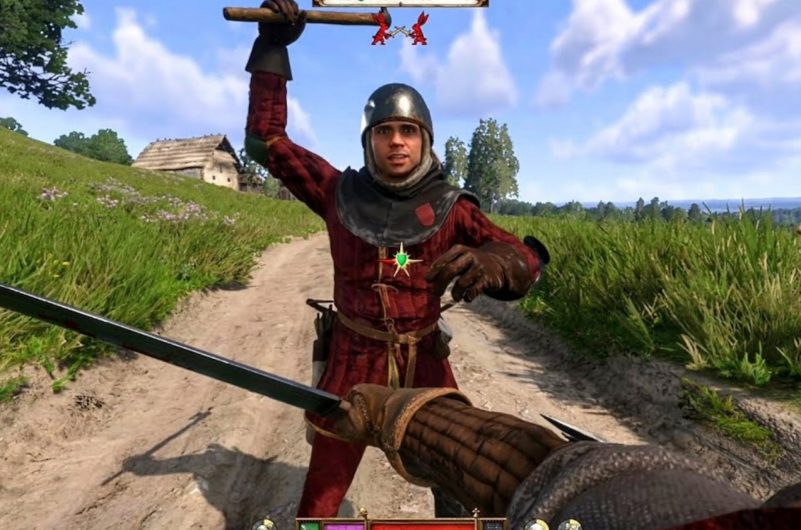Czech to English translation and localization have become essential skills as Czech gaming studios gain global recognition. Titles like Kingdom Come: Deliverance didn’t just succeed because of gameplay—they resonated because the world felt authentic, believable, and culturally grounded. But achieving that level of immersion for English players requires far more than swapping words between languages. It requires cultural adaptation, linguistic precision, and thoughtful recreation of tone, humor, and character identity.
In this article, we’ll break down six powerful localization insights based on the global adaptation of Kingdom Come: Deliverance. You’ll see how Czech studios balance medieval history with modern expectations, how they approach dialects and regional expressions, and why voice acting becomes its own translation challenge. We’ll also look at how developers preserve cultural realism without confusing players unfamiliar with Czech traditions. If you’re curious about Czech to English translation in the gaming world, this deep dive will show you exactly how localization transforms a uniquely Czech experience into a global hit.
- Preserving Czech Historical Authenticity Without Losing Player Clarity
One of the biggest challenges in localization is balancing authenticity with player comprehension. Kingdom Come: Deliverance is rooted deeply in 15th-century Bohemian history. Translators had to retain historically accurate terminology while ensuring English-speaking players didn’t feel overwhelmed. This required selectively explaining certain terms through context or dialogue, rather than lengthy exposition. By maintaining the cultural flavor but smoothing the learning curve, the studio ensured players stayed immersed instead of confused.
- Recreating Dialects and Social Hierarchies in English
Czech has clear distinctions between formal and informal speech, something English lacks. To maintain character dynamics, translators used variations in tone, vocabulary, and sentence structure. Nobles spoke with polished articulation, while peasants used simpler, rougher phrasing. While not a perfect equivalent to Czech linguistic levels, this approach preserved the social environment. It also helped English players instantly recognize status differences, just as a Czech audience would.
- Adapting Regional Idioms and Medieval Expressions
Czech idioms rarely translate cleanly, especially historical ones. Direct translations often sound awkward or lose meaning entirely. Instead of literal versions, localization specialists recreated equivalent English expressions that felt natural to players. When no equivalent existed, they crafted lines capturing the original intent—humor, threat, sarcasm, or wisdom. This method kept dialogue feeling alive while staying faithful to the story’s tone.
- Managing Culture-Specific References Without Over-Simplification
Medieval Czech culture includes unique customs, foods, and folklore. Translators avoided erasing these details to “Westernize” the world, but they strategically introduced context where needed. For instance, some cultural terms were explained through character banter or quest descriptions, allowing players to learn organically. This ensured cultural richness remained intact without alienating newcomers to Czech history.
- Voice Acting: Matching Czech Emotional Delivery in English
Voice acting plays a massive role in localization quality. English actors had to match not just the words but the emotional rhythm of Czech dialogue. Czech tends to use longer, more descriptive phrases, while English often condenses them. Localization teams worked closely with actors to deliver lines that sounded natural in English while preserving the emotional timeline of the Czech script. This attention to pacing significantly enhanced immersion.
- Translating Czech Humor and Sarcasm Into English-Friendly Delivery
Czech humor is often dry, sarcastic, and subtly delivered. Translators restructured several jokes and remarks to preserve comedic timing in English. Instead of direct translations, the team recreated humor with an equivalent punchline that matched the character’s personality. Maintaining this nuance ensured English-speaking players experienced the same tone and personality that Czech audiences loved.
Conclusion
Localizing a Czech game like Kingdom Come: Deliverance isn’t just about translating dialogue—it’s about transforming an entire cultural environment. Czech to English translation in gaming requires deep understanding of history, humor, dialects, and emotional delivery. At every step, the goal is balance: honoring the authenticity of Czech storytelling while making it accessible, engaging, and emotionally clear for English-speaking audiences. By preserving cultural elements, adapting idioms creatively, and working closely with voice actors, Czech studios have proven that localized games can feel just as rich as the originals.
As more Czech gaming studios reach global markets, mastering this level of localization becomes even more important. If you’re building multilingual experiences, studying titles like Kingdom Come: Deliverance offers powerful lessons.
FAQs
- Why is Czech game localization so complex?
Because Czech games often include cultural, historical, and linguistic specifics that require thoughtful adaptation. - Does humor translate easily from Czech to English?
Not usually—humor often requires full transcreation to maintain timing and tone. - Why are dialects challenging to localize?
English lacks direct equivalents to Czech speech levels, so translators must recreate tone through other methods. - How important is voice acting in Czech localization?
Extremely important; emotional accuracy affects immersion more than literal translation. - Do Czech games lose authenticity after localization?
Not when done properly—creative adaptation preserves both meaning and cultural richness.


